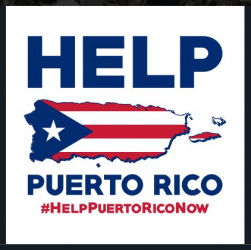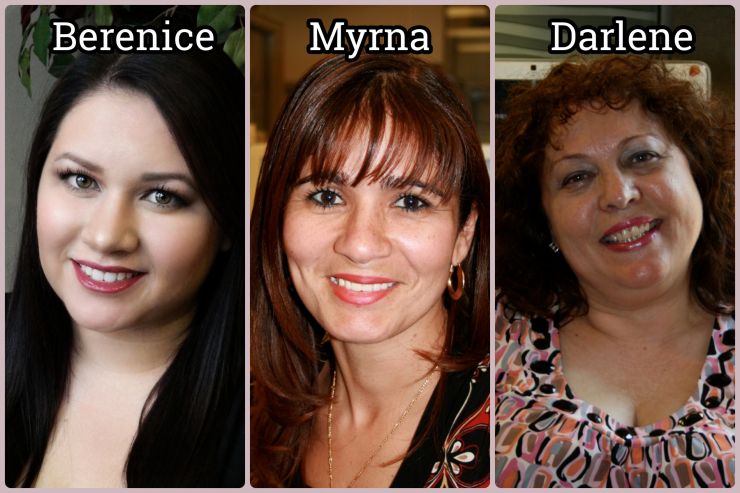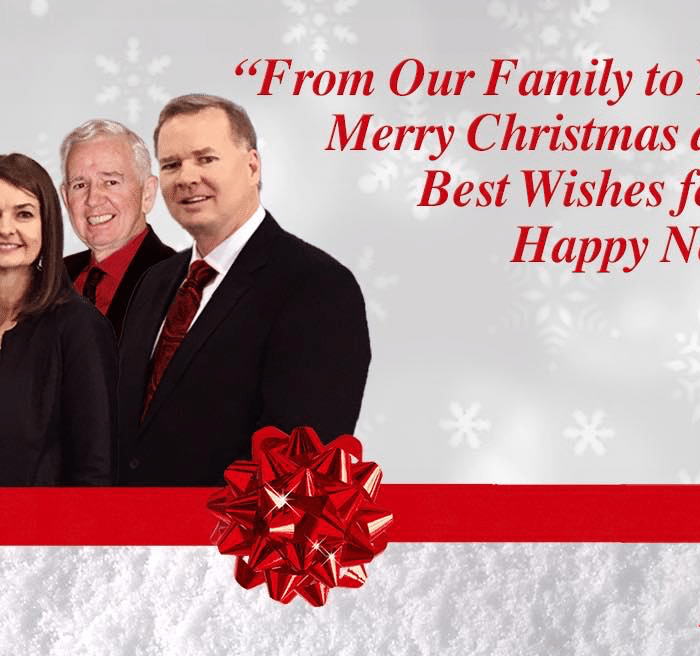Nov 22, 2017
 Thanksgiving is a holiday that is packed with so much
Thanksgiving is a holiday that is packed with so much
meaning and significance. Every year, we are invited to reflect upon the things
for which we are grateful and say thanks for our life’s blessings. The
importance of this holiday extends beyond a delicious meal or even a single
date on a calendar – it encourages everyone to approach each new day with
thankfulness. A big part of being thankful is staying cognizant of others who
are less fortunate and paying it forward. Perhaps that is why the word
‘Thanksgiving’ was first used –just the very act of giving reminds one of
everything for which they have to be thankful.
This year, ASD has placed an increased focus on ways we as a
company can demonstrate goodwill and help others. We’ve given back to more than
30 essential charities and organizations through company donation drives,
awareness campaigns, volunteer days, fundraisers and our
“Exercise for a Cause”
program. This Thanksgiving, we wanted to shine a beacon on one of those causes
to show our support on behalf of our employees who have been personally impacted.
Many people aren’t aware just how difficult the road to
recovery has been for the people of Puerto Rico as they rebuild from the
devastation of Hurricane Maria. We spoke with several of our employees who have
family and loved ones living in Puerto Rico to learn more about the current
conditions and how to help.
“A lot of people think that Puerto Rico is fine. But there’s still so much not back to normal. The recovery has been slow,” explains ASD Call Specialist, Berenice Torres, whose family is currently living in Puerto Rico. “A lot of cities are getting help from FEMA and other associations but a lot of cities in the country area are not and people assume that since they have sent help that everyone is automatically helped.”
Experts
believe that being one of a series of disasters has made relief in Puerto Rico
harder to come by after Hurricane Maria. According to
Samantha Penta, Assistant
Professor at the College of Emergency Preparedness, “When multiple devastating
events occur around the same time, the strain on donors and responders takes a
big toll.” Penta
reported that the American Red Cross had received just $31.6
million a month after Maria (compared to $350 million raised for Hurricane
Harvey recovery efforts). The lack of donations and coverage has had a direct
impact on the people of Puerto Rico who our employees tell us are still
desperate for any semblance of normal life.
“It’s always hard to talk about. It’s been a nightmare for
me, but I know it’s worse for the people who are living it,” says ASD Training
Specialist,
Myrna Russi. At the age of four, Myrna moved to the United States
from Puerto Rico where many members of her family, including her sister, still
live. Before Hurricane Maria, Myrna visited her family once every other year
and kept in regular contact with them. “I wonder when Puerto Rico will be like
it was, when they will have water, when they will have electricity, when things
are running like they used to run, but it’s hard to say. And I can’t even
communicate with my family and friends there. It’s been really hard.”
Lack of communication has proved to be a major barrier for
relief efforts in Puerto Rico. A full two months have now passed since
Hurricane Maria slammed into the island, yet the full extent of damage, both to
people and infrastructure, has not been fully accessed.
According to CNN, the number of people
who have died in Puerto Rico as a result of Hurricane Maria may also be much
higher than initially reported. CNN was able to contact 112 of the island’s
funeral homes (about half the total number in Puerto Rico). “Those funeral homes identified 499 deaths in
the month after the storm — September 20 to October 19 — which they say were
related to Hurricane Maria and its aftermath,” CNN reported. “That’s nine times
the official death toll. And, again, it represents only about half of funeral
homes.”
Myrna’s family lives in a mountainous region of Puerto Rico
where clean water is difficult to find and electricity is unreliable. She
believes that the inaccessibility of some areas of the island have really
hindered the effectiveness of disaster relief organizations. “Many roads got
washed away so the people can’t really walk the town to get to FEMA and FEMA
has not reached them. So that’s another problem, some of the help organizations
have not reached every area to help people. It’s been really devastating,” she
says.
The efforts required just to obtain basic daily essentials
has taken its toll on the people of Puerto Rico. Resuming everyday life is all
but impossible. According to Myrna, countless jobs have been lost and
businesses have closed as a result of the hurricane. Pharmacies and doctors
offices have shut down, forcing those with medical conditions to go to great
lengths to obtain treatment. A gasoline shortage in some areas of the island
has made it difficult for those with back up generators to power them. Clean
water is being sold in many places at triple cost.
“My family’s needs after the hurricanes in Puerto Rico are,
for the most part, water and gasoline. Not all stations are running yet, and
they ride around each day looking for water,” says ASD Senior Call Specialist,
Darlene Adorno, whose family resides on the island. “The lights finally came
back on, but they still suffer frequent power outages.”
Like Darlene, Berenice hears stories from her family of ways they have had to adapt to their current circumstances. “My family’s every day life was completely changed by the hurricane. They have no power still meaning they can’t cook normal meals, they have to purchase canned foods and meals that’s are non perishable,” she says. “There’s so many mosquitoes and bugs everywhere. There’s still no cell reception so they have to go to major cities to talk. A lot of people can’t celebrate the holidays this year.”
Berenice, Myrna and Darlene are among the millions of Puerto Ricans
living stateside who have loved ones on the island they desperately want to
help. Yet, sending donations or even a money order to relatives is extremely
difficult. Relief efforts and donation drives have been stymied because Puerto
Rico is so isolated and its postal service has been diminished.
“Puerto Rico does not get
help from neighboring states. You have to get on a boat or a plane, so the help
does not get to Puerto Rico. There aren’t a lot of social services or
resources,” Myrna explains. “My family hasn’t been able to receive packages or
even a money order. I sent a crate of water and supplies that I collected but
it didn’t go to my family. I just sent it to Puerto Rico just to do something.
You can’t select where the shipment is going to go to. It would cost thousands
of dollars to send to the right post office down there. Some of the packages
are taking a month to get there. Some people are stealing too. So it’s been
really hard trusting that what you send them is going to get to them.”
While sending donation items to a specific location in Puerto
Rico is not currently possible, those that want to help can still give back by
donating to an organization that is providing aid to the Island. There are,
unfortunately, many people who are profiting off of this tragedy by setting up
fake fundraisers or Go Fund Me campaigns. Myrna warns to be especially careful
of clothing companies using the tragedy in Puerto Rico to make a profit. Visit Charity Navigator if you aren’t sure whether an organization is trustworthy.
American Red Cross
The Red Cross is on the ground helping Puerto Ricans
affected by this devastating storm. In the first month, the Red Cross served
1.3 million meals and snacks, and distributed more than 843,000 relief items.
Financial donations are needed to be able to provide immediate disaster relief
for those affected. Help people affected by Hurricane Maria by visiting
redcross.org, calling
1-800-RED CROSS or texting the word MARIA to 90999 to
make a $10 donation
. Donations enable the Red Cross to prepare for, respond to
and help people recover from this disaster.
United for Puerto Rico
Beatriz Rosselló, the First Lady of Puerto Rico,
collaborated with the private sector to bring this initiative to fruition,
creating three designated help centers on the island.
Donations can be made via
phone or online.
ASD donated $1,000 to this organization earlier this month as
part of our
“Exercise for a Cause” program.
Philadelphia Consilio
A group of community activists and leaders organized by
Philadelphia Councilwoman
Maria Quinones Sanchez, PA State Legislator, Angel
Cruz,
and PA State Legislator, Emilio Vasquez, have developed a concerted,
grassroots effort to support the Island of Puerto Rico’s immediate needs. “They
have helped a lot. I went to the warehouse myself when I took my donations and
there were so many non-profits working together out of there,” Myrna says.
Adopt A Family in Puerto Rico
This grassroots platform created by a group of volunteers allows families in need in Puerto Rico to sign up, detailing their needs. Those wanting to help can sign up and spell out how much they are able to give. “Adopt a Family” matches the two parties. Money and supplies are sent directly to the family in need to help them rebuild their lives.
While Myrna has offered to have her relatives stay with her
in Pennsylvania, for now they are staying put in hopes of rebuilding. “A lot of them who have lived
there all their life do not want to come here. Most people are trying to see if
life can go back to normal, but if not than they are leaving because they can’t
live there,” she says.
Others have traveled up to see relatives and to get supplies
to bring back home. “My family was just here in Pennsylvania where I was
able to get them a few solar-powered lights they could use in the house at
night,” Darlene says.
For those that want to help Puerto Rican families who came to the United States after the hurricane,
many local city departments, colleges and Salvation Armies are accepting
donations for families who have to relocate. ASD donated our NFDA Convention
chairs to one of these local organizations (
Southbridge for Puerto Rico) while
were in Boston.
“A lot of people at
ASD have helped me with donations. So I always thank them for that because
you’re helping someone that you even don’t know, but you know families are
hurting,” Myrna says. “I love going to Puerto Rico. I try to go every two
years. I know it’s not going to be the same when I go back. I’m just hoping for the best and that things can start
to normalize.”

ASD have helped me with donations. So I always thank them for that because
you’re helping someone that you even don’t know, but you know families are
hurting,” Myrna says. “I love going to Puerto Rico. I try to go every two
years. I know it’s not going to be the same when I go back. I’m just hoping for the best and that things can start
to normalize.”

About The Author
Jess Farren (Fowler)
Jess Farren (Fowler) is a Public Relations Specialist and Staff Writer who has been a part of the ASD team since 2003. Jess manages ASD’s company blog and has been published in several funeral trade magazines. She has written articles on a variety of subjects including communication, business planning, technology, marketing and funeral trends. You can contact Jess directly at Jess@myASD.com








